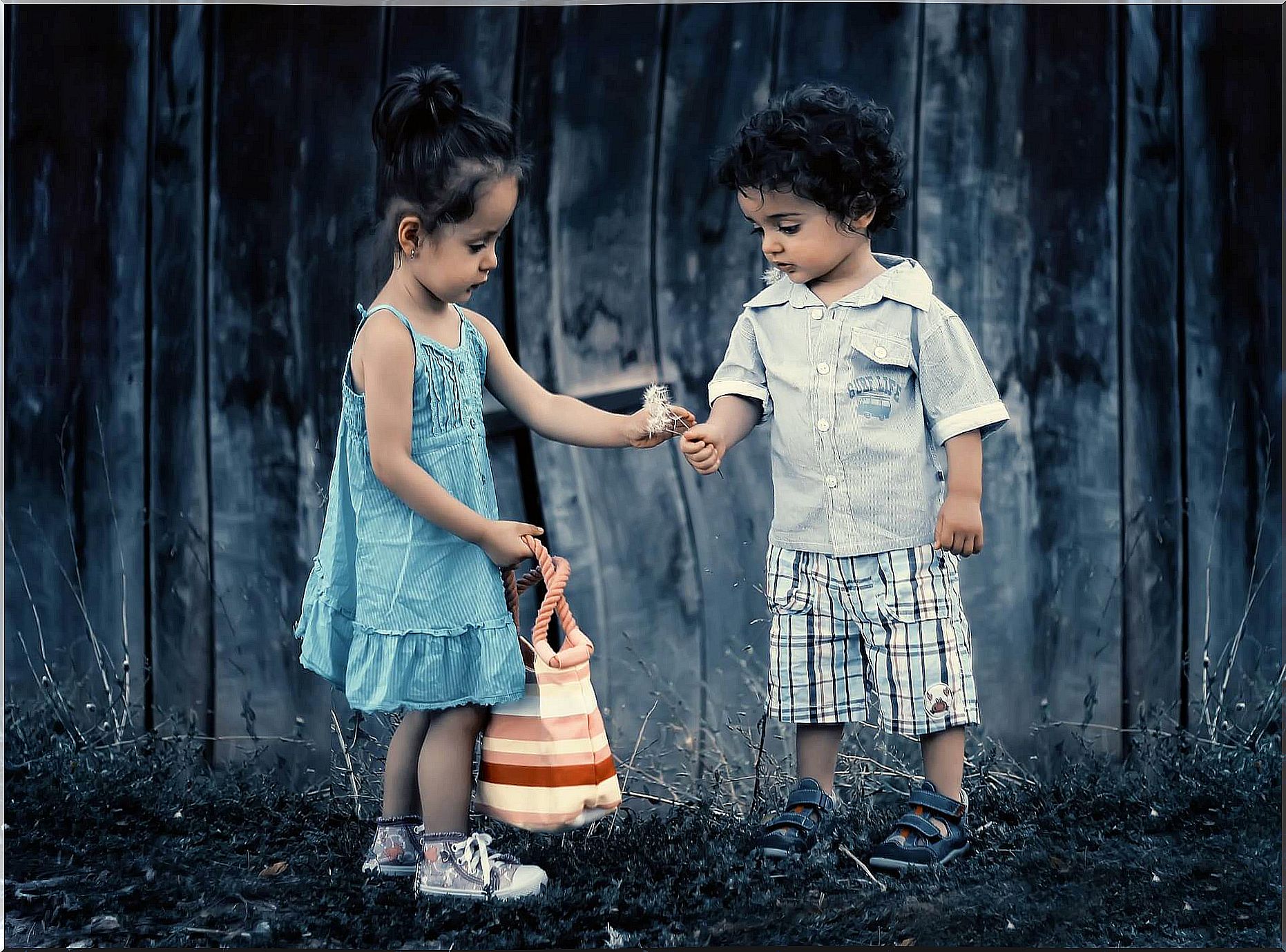7 Ways To Encourage Kindness In Children

We often want our children to grow up to be beautiful people both inside and out. Therefore, we try to transmit values and provide a suitable environment. However, to develop kindness in children, knowing how to set an example is essential.
What is the kindness of children really about?
Kindness is a human quality that reflects the tendency to do good and empathize with others. In this sense, it is concluded that a kind person is one who takes into account several variables before making a decision. In general, its aim is to ensure balance and common well-being.
Parents often strive to make their children good at heart, but they often confuse the children’s kindness with slowness or passivity. This corresponds to a competitive point of view, in which to be better than others you have to be strong and agile, not calm and reflective.
Certainly, if we want to introduce the little ones to the path of goodness in an effective way, we must teach them to be kind and collaborators.
On the other hand, we must also nurture children’s self-esteem. Especially when it comes to security, trust and proactivity. That’s the kind of strength you need for life.

7 ways to encourage kindness in children
1. The thanks
Appreciation is fundamental in education. It is one of the foundations for structuring children’s kindness. It is not only a gesture of kindness towards others, but it also helps to appreciate the gestures of others towards us.
Words like “thank you” and “please” are the tools that will allow you to open many doors along the way. After all, who doesn’t like a polite relationship?
2. Solidarity
To encourage kindness in children it is necessary to teach sharing and helping everyone in need. It is about giving what we can give, not what we have too much.
3. Emotional intelligence
This is another important pillar in the stairway for building children’s kindness. Recognizing, assimilating and knowing how to manage emotions is essential to have positive interactions and bonds. It benefits both the person and others as it improves communication and encourages the value of respect.
In this sense, it is essential to help the little ones to express their feelings in order to get to know themselves. Likewise, we must also set a good example of emotional intelligence. Not just to teach, but to maintain a healthy and constructive environment.
4. Collaboration
In general, children are very supportive and this is essential for encouraging kindness. They are easily motivated because they like to actively participate. They like to feel integrated and, at the same time, curiosity gives them wings. Which is why they feel very happy to participate in a task.
If we include them in activities at home, little by little, they will get into the habit of being collaborative and responsible. This is very advantageous for them because they will not see routine tasks as an obligation, but as an activity they are part of.
5. Questions and games
It is important to allow our children to explore the world, ask questions, seek information and grow. It is also very important that they can play, explore and satisfy their curiosity.

6. Patience
For the development of kindness in children, it is necessary to teach them to be patient. This is one of the hardest lessons we have as parents, but like everything else, you have to constantly try.
A patient child will be able to listen to others without getting hurt. Listening does not mean that you should give in or be totally in agreement with what you hear. It’s about waiting and carefully analyzing things to find the right moment to express yourself. This is very enriching for life.
7. Know how to apologize and apologize
Knowing how to apologize is very important to developing kindness in children. It is not always about expressing verbally, but about finding a way to stop for a moment, constructively reassess the conflict, approach the other, apologize and move on.
In addition, you need to make the children understand that apologizing can soothe the heart. Knowing how to recognize their own mistakes and the negative consequences that others have suffered, allows them to start again, identify failures and learn to promote positive situations for everyone.
the importance of affection
For a child to develop in a healthy way, both psychically and emotionally, it is essential that they feel valued, loved and loved by their families.
The forms we have indicated above are very useful. But it is also necessary that we know how to express our affection and our pride to children whenever it is necessary and possible. This will put a smile on their souls that will light up the world around them, including ours.








